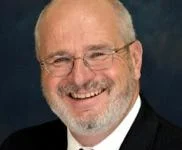Indiana State Officials Prepare For A Surge In COVID-19 Cases
By Erica IrishÂ
TheStatehouseFile.com
INDIANAPOLIS—The number of COVID-19 cases in Indiana rose to 2,159 Tuesday, and 49 people have now died from the novel respiratory illness, according to the latest reports from state health officials.
But even as the state takes aggressive action to gather additional personal protective equipment and staff for hospitals, the public health crisis is exacting its toll on those charged with finding new strategies to protect Hoosiers, who remains under a stay-at-home order issued by Gov. Eric Holcomb until at least April 7.
“It’s a very sad reality that in this pandemic our number of cases and number of deaths are going to continue to increase. I don’t want to minimize a single one of those losses,†Indiana State Health Commissioner Dr. Kristina Box said at Tuesday’s daily, virtual press briefing as she appeared to choke up in her remarks.

“I do not want Hoosiers to see these rising numbers and think that means that the peak has arrived. We have a very long way to go before we reach the peak and I cannot say enough about how important it is for you to continue to stay home.â€
Holcomb added it is difficult to predict when state officials can de-escalate their response to the virus, which has so far closed businesses, schools and more.
“We understand and are equally concerned about the pain that is being put upon all of us, both from a humanitarian and an economical perspective,†Holcomb said. “What we’re trying to do is make sure, one, that our healthcare system doesn’t collapse under the weight of all the new cases, and to do that, we’ve had to change our behavior.â€
COVID-19 cases are expected to surge in the coming weeks and peak in mid- to late-April. But projections aren’t certain on that, either: The number of cases might not peak until May, Box said Monday, and cases may increase and stagnate in waves.
On Monday, Box, Holcomb and other state health officials outlined their latest strategies to the impending surge, including measures to preserve personal protective equipment needed to keep healthcare workers responding to COVID-19 safe by limiting elective medical procedures ahead of the surge.
State officials also set a goal to double the number of ventilators and intensive care unit beds available to treat patients who fall critically ill to the disease and called on medical professionals who have retired or are not currently working to volunteer to help with the COVID-19 response, a plea that has now resulted in 11,000 volunteers.  The number of volunteers more than doubled in a single day.

While specific numbers have yet to be confirmed by the state health department and regional hospitals, Box said she and state officials expect that around 20% of those testing positive for COVID-19 will be hospitalized at this time. An estimated 5% of those hospitalized could fall critically ill and require treatment in an intensive care unit, she added.
On Monday, Holcomb announced he would enact two new executive orders in an effort to slow disease spread and to conserve enough medical supplies to prepare for an expected surge in COVID-19 cases.
One of Holcomb’s new executive orders clarifies guidance to healthcare providers that ask all non-emergency medical procedures to be canceled or postponed. The order applies to a range of services, including dentists, dermatologists, and veterinarians, and also specifies abortion clinics as providers that should limit non-essential services.
In Tuesday’s news conference, Holcomb said healthcare providers should adhere to the language of his executive order when making decisions about what services are non-essential. He did not confirm if providers should specifically cancel or postpone abortions, saying it is up to doctors to determine if a procedure is necessary to prevent harm to a patient.
“Any and all medical expertise and PPE first need to go toward, during this window, toward defeating COVID-19,†Holcomb said. PPE is personal protective equipment.
The inclusion of abortion clinics has raised questions among providers and other groups who seek to protect access to abortion.
“Medical experts recognize that abortion is an essential, time-sensitive medical procedure,†Planned Parenthood of Indiana and Kentucky CEO Chris Charbonneau said in a statement Tuesday. “We are complying with the governor’s directive, which requires health care providers to stop providing surgeries or invasive procedures that are non-urgent as determined by their medical provider.â€
The national arm of the American Civil Liberties Union has sued three states — Ohio, Alabama and Iowa — for executive orders that restrict access to abortion. A federal appeals court in Texas on Tuesday upheld the state’s ban on all abortion procedures during the pandemic.
“Clearly, some lawmakers will stop at nothing to push abortion care out of reach,†said Jennifer Dalven, director of the ACLU Reproductive Freedom Project, in a statement. “Doing so is a violation of our rights at any time, but during a pandemic, the consequences are even direr.â€
The ACLU of Indiana said it will continue to monitor how the directive affects abortion access and that abortion providers will comply with the governor’s order to preserve medical supplies while ensuring pregnant people have access to the healthcare they need.
“As the scientific community responds to the COVID-19 virus, pregnant people must have available to them the full range of health services and accurate information to make their own decisions about pregnancy and parenting,†representatives for the ACLU of Indiana said in a statement.
FOOTNOTE: Erica Irish is a reporter for TheStatehouseFile.com, a news website powered by Franklin College journalism students.Â




